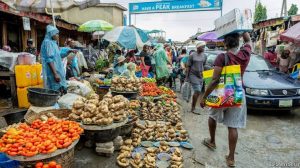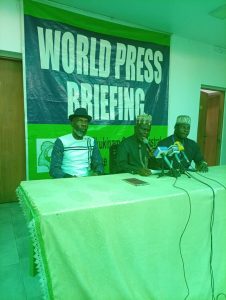
Democracy Day holds significant meaning as it commemorates the June 12, 1993, presidential election, which was declared invalid despite the victory of the late Chief MKO Abiola.
Asiwaju Bola Tinubu, the current president and former member of the National Democratic Coalition (NADECO), played a crucial role in the fight to uphold Abiola’s mandate. However, Tinubu’s life took an unexpected turn, and his survival can be credited to an act of kindness involving a local dish called “Amala”.
Reflecting on those challenging times, Tinubu shared his account in an interview with TheNEWS, stating, “I didn’t have a passport and couldn’t have been able to fly. They eventually learned about our travels since they had spies everywhere, including in the Benin Republic. Twice I was discovered, but I luckily got away. When I was hiding, they tracked me to a run-down hotel.”
Describing a particular incident, Tinubu explained, “I had gone out on an Okada to a market where Yorubas predominate to buy amala the day they came for me at the hotel. Akinrinade and the rest of them would also be introduced to me.”
It was during this encounter that Tinubu noticed two individuals wearing skull caps posing inquiries at the hotel’s front desk. Sensing the danger, he received a discreet signal from the receptionist, with whom he had established a cordial relationship. Reacting swiftly, Tinubu sought refuge with an architect friend in the Benin Republic who sympathized with their cause.
The night brought fortune to some, as Professor Wole Soyinka and Alani Akinrinade, who were being pursued, managed to evade their would-be captors by staying in a different hotel.
“Fortunately, the persons hunting them down missed them as they pursued them to the hotel,” Tinubu revealed, highlighting the narrow escape.
Through sheer perseverance and unwavering dedication to democracy, Tinubu emerged from these harrowing experiences. Today, he holds the esteemed position of President and Commander in Chief of the Armed Forces of the Federal Republic of Nigeria.
He joins the ranks of notable freedom fighters who eventually assumed leadership roles in their respective countries, such as Lech Walesa of Poland, Jomo Kenyatta of the Mau Mau Struggle in Kenya, Yoweri Museveni of Uganda (albeit a long-serving leader), Robert Mugabe of Zimbabwe (who later took a different path), Kenneth Kaunda and Patrick Chiluba of Zambia, Aung San Suu Kyi of Myanmar, Luiz Inácio Lula da Silva of Brazil, and, of course, Nelson Mandela of South Africa.



